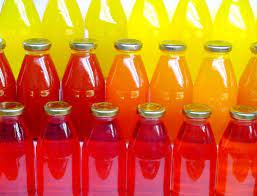Sustainable Clarification in Food & Beverage Operations

Companies within the food and beverage industry generate significant quantities of wastewater each day. For example, a 16 oz. can of beer is about 90-95% water, however, to make this beer producers utilize approximately 7 times this quantity. About 2/3 to 3/4 of this water is typically discharged as wastewater to a municipal sewer system.
Based on statistical data, there was approx. 6.3 trillion gallons of beer sold in 2019. Based on the water ratio indicated above, there was about 31 trillion gallons of wastewater generated to produce this beer.
This statistic is from only one segment of the food & beverage industry in the USA. Therefore, it is easy to see why wastewater treatment systems can be effective in reducing the industrial discharge load from food & beverage clients to municipal sewer systems across this country and around the world.
It is important that wastewater is sustainably treated before its released, reducing harm to the local ecosystem and decreasing pollutants in area water sources. This is why it’s so important for the food and beverage companies to consider carefully their wastewater treatment solutions.
What type of wastewater effluent are you discharging?
Food & beverage industry companies need to know what contaminants they are discharging. Wastewater treatment systems must meet regulatory guidelines on the contaminants that are discharged. These parameters include biological oxygen demand (BOD), chemical oxygen demand (COD), total suspended solids (TSS), phosphorus, and nitrogen.
For instance beer producing breweries typically generate high levels of phosphorus and nitrogen in their wastewater streams. In addition, total suspended solids from the grains, barley, or hops must be filtered as well. If all of these contaminants are being directly discharged to the municipal sewer network, the discharge fees will be very high.
Slaughterhouses and dairies have their own issues with these contaminants including higher levels of ammonia, bacteria, fats, oils and greases.
How Can Food & Beverage Companies Optimize Wastewater Treatment?
Due to the immense amount of wastewater that is often generated by companies in the food/beverage industry, industrial wastewater treatment systems are typically implemented on-site prior to discharge to a local wastewater treatment plant. These systems can also be used for water reuse purposes too.
Sustainable clarification is typically used in one of the primary steps of these treatment systems. Utilizing a bio-organic flocculant such as Zeoturb can sustainably and efficiently reduce total suspended solids, biological oxygen demand (BOD), chemical oxygen demand (COD) as well as phosphorus prior to secondary and tertiary wastewater treatment processes. This reduces the pollutant load on these treatment systems to treat the water prior to discharge or reuse.
Are you Looking for a Compact Modular Treatment Process?
Typically, based on your food & beverage wastewater application, a compact modular process design can include primary screening, clarification, biological or electrochemical treatment, along with post clarification, filtration and disinfection.
Are you involved in plant operations in the food and beverage industry and looking to optimize your treatment process?
Genesis Water Technologies’ treatment specialists can help you design or optimize your treatment system process integrating sustainable clarification solutions.
We look forward to assisting you with innovation treatment solutions to your process water and wastewater treatment needs.
Contact the water & wastewater treatment experts at Genesis Water Technologies, Inc. +1 877 267 3699 or reach out to us via email at customersupport@genesiswatertech.com to discuss your specific application.

